The expert team at Zhejiang Blissam Chemical Co., Ltd. has many years of experience and technical expertise in the field of silicone oil for resin. As one of the top silicone manufacturers in China, Blissam works tirelessly to develop new formulas and find innovative solutions to meet customers' specific needs. Their knowledge and dedication have helped us earn the trust and loyalty of our clients.
Silicone resin is a high-performance synthetic material with good weather resistance, high temperature resistance, electrical insulation, and chemical stability. It can be made into various types of products according to different purposes and formulas. The following are some common types of silicone resin products: 1. Silicone resin coating: This product has good weather resistance, wear resistance, and corrosion resistance, and is suitable for outdoor and indoor metal, wood, plastic, and other surfaces. 2. Silicone resin adhesive: This product has excellent weather resistance, high temperature resistance, and low temperature resistance, and is suitable for applications such as bonding, sealing, and insulation. 3. Silicone resin sealant: This product has excellent sealing and waterproofing properties, and is widely used in fields such as electronic equipment, automobiles, and construction. 4. Silicone resin thermoplastic elastomer: This product has good heat resistance, weather resistance, and chemical resistance, and is suitable for soft touch materials in fields such as automobiles and electronic equipment. 5. Silicone resin thermosetting plastic: This product has excellent heat resistance, electrical insulation, and chemical resistance, making it suitable for electrical insulation materials in high-temperature environments. 6. Silicone resin ink and coating: This product has good weather and chemical resistance, and is suitable for use in the printing and coating fields. 7. Silicone resin sealing material: This product has excellent weather resistance, high temperature resistance, and electrical insulation, making it suitable for sealing protection of electronic equipment.
about epoxy silicone resin, we have carefully prepared some relevant professional knowledge documents for you, {hope to provide some help to you who are interested in silicone oil for resin


1epoxy silicone resin products have gained popularity in recent years due to their numerous environmental advantages. These products are made from a compound derived from silicon, a naturally occurring element in the earth's crust. Unlike traditional plastic products, silicone resin does not release harmful chemicals into the air or water when it is manufactured or disposed of.
2epoxy silicone resin products exhibit excellent chemical resistance, making them very popular in a variety of industrial environments. They can withstand exposure to acids, solvents and other harsh chemicals without degrading, making them a reliable choice for use in environments where chemical exposure is a concern.
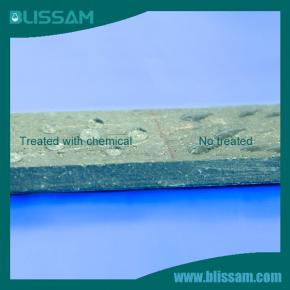
Silicone resin is a versatile and durable material that has become increasingly popular in a wide range of industries. It is a synthetic polymer that is made from silicon, oxygen, carbon, and hydrogen. Its unique chemical properties make it resistant to high temperatures, UV rays, and chemicals, making it an ideal choice for a variety of applications.One of the key features of silicone resin is its durability. It has a strong and flexible molecular structure, making it resistant to wear and tear. This makes it a popular choice for products that require frequent use or exposure to harsh environments.In addition to its durability, silicone resin is also highly versatile. It can be easily molded into various shapes and forms, making it suitable for a wide range of applications. It is commonly used in the production of sealants, adhesives, and coatings for construction and automotive industries.

Silicone resin is a versatile material with a wide range of applications. As its name suggests, it is made primarily from silicone, a synthetic compound known for its heat resistance and flexibility. From adhesives to electrical insulation, silicone resin has become an essential ingredient in various industries.In the manufacturing sector, silicone resin is widely used as an adhesive due to its strong bonding properties. It can securely bind materials such as ceramics, metals, and plastics, making it a popular choice for construction, automotive, and electronics industries.
Silicone Resin--An Ultimate FAQ Guide.
1.Is Silicone Resin available in multiple colors?
2.What is the texture of Silicone Resin?
3.What is the difference between Silicone Resin and other resins?
4.About Silicone Resin quality system
5.What happens when Silicone Resin comes in contact with air?
6.Is Silicone Resin biodegradable?
7.What are the chemical properties of Silicone Resin?
8.Does Silicone Resin have high temperature resistance?
9.About Silicone Resin inventory
10.What is the difference Silicone Resin Fluids Blissam vs Silicone Resin Bluestar Silicones vs Silicone Resin KCC Corporation
11.Is Silicone Resin weather-resistant?
12.What properties does Silicone Resin have?
13.Can Silicone Resin be used as a sealant?
14.About Silicone Resin patent
15.Can Silicone Resin be used to create products with corrosion-resistant properties?
16.How to Produce Silicone Resin?
17.What is Silicone Resin?
18.About Silicone Resin payment method
19.What is the difference Silicone Resin Fluids Blissam vs Silicone Resin Shin-Etsu Chemical Co., Ltd vs Silicone Resin Elkem ASA
1.Is Silicone Resin available in multiple colors?
The color of organic silicone resin is mainly achieved by adding dyes to achieve different colors, divided into two colors: fully transparent and partially transparent. An opaque color is divided into three colors: milky white, gray black, and dark gray, suitable for different natural environments. No matter which color of adhesive is used, it can be very earthquake resistant, waterproof, corrosion-resistant, and resistant to high and low temperature tests, making it less prone to problems.
2.What is the texture of Silicone Resin?
Hand feel is a very important indicator for measuring the quality of finished leather. The use of hand feel agents in the top coating of leather can greatly improve the comfort, aesthetics, and added value of leather. Among the hand feeling agents, silicone hand feeling agents have the best effect, the most varieties, the widest application, and the fastest development. The leather treated with organic silicon tactile agent can not only maintain elasticity, fullness, breathability, and hygiene performance, but also improve the tactile feel and softness. After finishing, the drying speed is fast, and it is not easy to become hard or brittle after drying. The surface of the leather has good stability to water and chemicals.
3.What is the difference between Silicone Resin and other resins?
Organosilicon resin is a type of polymer that is composed of a skeleton composed of alternating silicon and oxygen atoms, and different organic groups are then connected to silicon atoms. The structure of organic silicone resin contains both "organic groups" and "inorganic structures". This special composition and molecular structure combine the characteristics of organic matter with the functions of inorganic matter. Below, the editor will introduce the properties and uses of silicone resin. 1. High temperature resistance Generally, the heat resistance temperature of synthetic resin paint is below 150 ℃, while organic silicon paint can be used for a long time at 200 ℃. If high-temperature pigments are added, the heat resistance can reach 400 ℃~500 ℃, and special ones can also reach 800 ℃~900 ℃. Therefore, it is suitable for coating high-temperature resistant components. 2. Electrical performance and hydrophobicity number Due to the presence of a non polar organic gene and molecular symmetry on the outer layer of organic silicone paint molecules, it is the fundamental reason for its excellent electrical insulation performance and hydrophobicity. In terms of insulation, not only does it have high insulation resistance, but it also exhibits excellent performance in terms of breakdown amplitude and resistance to high-voltage arc sparks. Therefore, it can be used for impregnating motors and components with high insulation performance requirements to improve the insulation level of insulation components. 3. High surface activity and low tension Due to the fact that polysiloxane is a symmetrical molecule and the substituent is a non-polar organic group, the entire molecular formula is non-polar. The force between molecules is small, and the cohesive force of molecules themselves is also small, so the surface tension is small. When it is dispersed on the surface of the medium with high surface tension, it can separate the medium. Moreover, because the force between itself and the molecules between the medium is also small, it can reduce the surface tension of the medium, making it difficult to form foam. This is why silicone oil can be used as a defoamer in paint making. Therefore, it can be used as a defoamer and leveling agent in paint blending to prevent paint film luminescence, pitting, etc., with a dosage of 0.2% to 0.3%. 4. Good cold resistance Due to the structure of the organic silicone paint macromolecules themselves, the attraction between molecules is weak, which endows it with good cold resistance. The cold resistance of pure silicone is around -50 ℃, while the polyester modified silicone paint W31-1 can withstand temperatures below -80 ℃. Therefore, this paint can be used in colder areas. 5. Good chemical resistance Due to the presence of ether bonds in organic silicone paint, it has excellent inherent resistance to chemicals. For example, the paint film is immersed in 2% acetic acid: 10% hydrochloric acid, 10% nitric acid, 10% sulfuric acid, 10% caustic soda, 10% sodium nitride or butanol, kerosene, and after 100 hours, the paint film is still in good condition. 6. Good mold resistance Because organic silicon paint does not contain oil components, mold cannot survive on the organic silicon paint film, making organic silicon paint have good mold resistance and suitable for coating on components with special mold resistance requirements. Resins usually refer to organic polymers that have a softening or melting range after being heated, and have a tendency to flow under external forces during softening. They are solid, semi solid, and sometimes liquid at room temperature. Broadly speaking, any polymer compound that can be used as a raw material for plastic product processing is called a resin. The relative molecular weight is uncertain but usually high, and it is a solid, medium solid, pseudo solid at room temperature, and sometimes can also be a liquid organic substance. Has a softening or melting temperature range, has a tendency to flow under external forces, and often ruptures in a shell like manner. Broadly speaking, it refers to polymers or prepolymers used as plastic substrates. Generally insoluble in water but soluble in organic solvents. It can be divided into natural resin and synthetic resin according to its source; According to their different processing behaviors, there are thermoplastic resins and thermosetting resins.
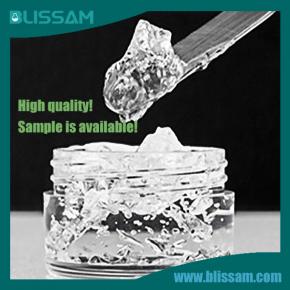
4.About Silicone Resin quality system
Ensuring product quality is a key issue in the production process of chemical products. We will take the following measures: 1. Establish reasonable production processes and operating procedures: Production processes and operating procedures should undergo scientific research and verification to ensure the stability and controllability of the production process. The operating procedures should specify the requirements for the selection and maintenance of production equipment, the requirements for raw material batching and mixing, and the control requirements for processing conditions. 2. Strict control of production environment: The production environment of chemical products has a significant impact on product quality, so it is necessary to strictly control the production environment, including parameters such as temperature, humidity, pressure, impurities, etc. 3. Establish an effective quality management system: Enterprises should establish a comprehensive quality management system, clarify product quality standards, testing methods, quality control processes, etc., and comprehensively monitor the production process to promptly identify and solve problems. 4. Strengthen raw material quality control: The quality of raw materials in chemical products directly affects product performance and stability, so strict quality control of raw materials is necessary, including supplier selection, raw material inspection, storage and use, and other links. 5. Pay attention to employee training and quality awareness education: Employees are an important factor in the production process. Enterprises should pay attention to employee training and quality awareness education, improve employees' professional skills and quality awareness, and ensure stability and product quality in the production process. 6. Reasonable use of additives and additives: In the production process of chemical products, the reasonable use of additives and additives can improve product performance and stabilize product quality, but attention should be paid to the dosage and ratio to avoid adverse effects on the product. 7. Establish a product quality inspection and feedback mechanism: Enterprises should establish a product quality inspection and feedback mechanism to conduct spot checks or full inspections on the produced products to ensure that they meet quality standards. At the same time, timely handling and improvement should be carried out on the quality issues that have been feedback. In short, ensuring the quality of chemical products requires starting from multiple aspects, including production processes, environmental control, raw material quality, employee training, additive use, quality testing, and feedback mechanisms. Only by comprehensively considering and taking corresponding measures can the quality and stability of chemical products be ensured.
5.What happens when Silicone Resin comes in contact with air?
Silicone resin is a thermosetting plastic, and one of its most prominent properties is its excellent thermal oxidation stability.
6.Is Silicone Resin biodegradable?
There is currently no clear answer to the question of whether organic silicone resin can be biodegradable. The biodegradability of organic silicone resins varies depending on their composition and environmental conditions. Some organic silicone resins can be biodegradable, but not all organic silicone resins can be biodegradable. In the natural environment, the biodegradation process of organic silicone resin may be influenced by various factors, including microbial species, temperature, humidity, pH value, etc. Some specific microorganisms can decompose organic silicone resin, breaking it down into smaller molecules, ultimately converting it into harmless substances such as water and carbon dioxide. However, the biodegradability of organic silicone resins is not one of their main application characteristics. They are more widely used in fields such as optics, electronics, and medicine, where the stability, heat resistance, and transparency of materials are more important. Therefore, in the design and application process, we focus more on these performance indicators rather than biodegradability. Overall, the biodegradability of silicone resins varies depending on their composition and environmental conditions, but their stability, heat resistance, and light transmittance are more critical in applications in optical, electronic, and medical fields. Therefore, when selecting and using silicone resins, we need to consider them comprehensively based on specific application needs and environmental conditions.
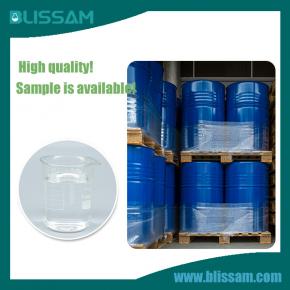
7.What are the chemical properties of Silicone Resin?
Silicone resin is a type of synthetic polymer material that is known for its unique chemical properties. It is composed of silicon atoms bonded with oxygen, carbon, and hydrogen atoms, resulting in a highly cross-linked network structure. This structure is what sets silicone resin apart from other resins and gives it its unique properties. One of the main chemical properties of silicone resin is its high durability and resistance to extreme temperatures, chemicals, and weathering. This makes it highly suitable for use in various industrial applications, such as coating, adhesives, and electrical insulation. Additionally, silicone resin is also highly flexible and has good electrical properties, making it an excellent choice for insulation and protection in electronic devices. It is also resistant to UV radiation, making it ideal for use in outdoor applications. Moreover, silicone resin is known for its water-repellent properties, as it does not absorb water or other liquids. This makes it highly useful in waterproofing and coating applications.
8.Does Silicone Resin have high temperature resistance?
Generally, the heat resistance temperature of synthetic resin paint is below 150 ℃, while organic silicon paint can be used for a long time at 200 ℃. If high-temperature pigments are added, the heat resistance can reach 400 ℃~500 ℃, and special ones can also reach 800 ℃~900 ℃. Therefore, it is suitable for coating high-temperature resistant components.
9.About Silicone Resin inventory
We have enough inventory for our customers.
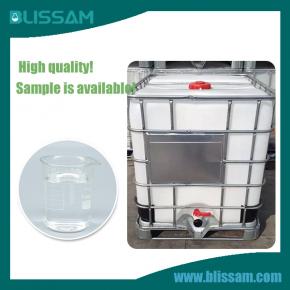
10.What is the difference Silicone Resin Fluids Blissam vs Silicone Resin Bluestar Silicones vs Silicone Resin KCC Corporation
Silicone resin fluids, such as Blissam and Bluestar Silicones, are synthetic materials derived from siloxane polymers and are widely used in various industries including cosmetics, construction, and electronics. These fluids are known for their excellent thermal resistance, electrical insulation, and water repellent properties. One of the main differences between Blissam and Bluestar Silicones is their chemical composition. Blissam is a silicone resin fluid produced by Shin-Etsu Chemical Co., Ltd., and is mainly used in the cosmetics industry for its unique sensory properties and compatibility with other cosmetic ingredients. On the other hand, Bluestar Silicones is a silicone fluid developed by the Bluestar Group and is widely used in industries such as construction, textiles, and automotive for its excellent release properties and resistance to weathering. Another player in the silicone resin fluid market is KCC Corporation, a Korean chemical company that produces silicone resins under the brand name KCC Silicone Resin. KCC Silicone Resin is known for its high-quality and environmentally-friendly production process, making it a popular choice in the construction industry for sealants, adhesives, and coatings. In conclusion, while all three companies produce silicone resin fluids, their products have different applications and properties. Whether you need a cosmetic ingredient, a release agent, or a sealant, there is a silicone resin fluid available to meet your needs from these trusted brands.
11.Is Silicone Resin weather-resistant?
Yes, due to the presence of a non polar organic gene and molecular symmetry on the outer layer of organic silicone paint molecules, it is the fundamental reason for its excellent hydrophobicity.
12.What properties does Silicone Resin have?
Silicone resin is a thermosetting plastic, and one of its most prominent properties is its excellent thermal oxidation stability. After heating at 250 ℃ for 24 hours, the weight loss of silicone resin is only 2-8%. Another outstanding performance of silicone resin is its excellent electrical insulation performance, which can maintain its good insulation performance over a wide temperature and frequency range. characteristic (1) Silicone resin has good bonding performance to metals such as iron, aluminum, and tin, and is also easy to bond to glass and ceramics, but its adhesion to copper is poor; (2) Organic silicone adhesive based on pure silicone resin, mixed with inorganic fillers and solvents, releases small molecules during curing and requires heating and pressure; (3) The curing temperature of adhesives based on silicone resin is too high, which limits their application; (4) By adding a small amount of ethyl orthosilicate, potassium acetate, and silicate glass, the curing temperature was reduced to 220-200 ℃, and the high-temperature strength was still 392-490MPa; (5) Pure silicone resin has low mechanical strength and can achieve high-temperature resistance and excellent mechanical properties when co modified with organic resins such as polyester, epoxy, or phenolic. It is used for high-temperature resistant structural adhesives.

13.Can Silicone Resin be used as a sealant?
Yes.In the construction industry, silicone resin is often used as a building sealant. Due to its excellent weather resistance and adhesion, it can effectively prevent water and air infiltration, ensuring the sealing and durability of buildings. Organic silicone resin sealant is widely used in exterior walls, windows, and doors of buildings.
14.About Silicone Resin patent
Silicone resin is a versatile and widely used material in various industries, such as electronics, aerospace, automotive, and construction. It is a type of polymer that is composed of cross-linked silicon-oxygen bonds, which give it exceptional thermal and chemical resistance, as well as excellent electrical insulation properties. Silicone resin has been granted numerous patents due to its unique properties and wide range of applications. These patents cover various methods of production, modifications, and applications of silicone resin, making it a highly valuable material in the modern world. Its durability, flexibility, and low toxicity make it a preferred choice for many manufacturers and engineers. With ongoing research and development in the field, silicone resin continues to be a key player in the advancement of new technologies and products.
15.Can Silicone Resin be used to create products with corrosion-resistant properties?
Yes.Silicone resin has corrosion resistance, which can resist certain sulfuric acid, hydrochloric acid and other similar acidic media. Therefore, it is often used as a material for synthetic rubber, foam plastics and other products.
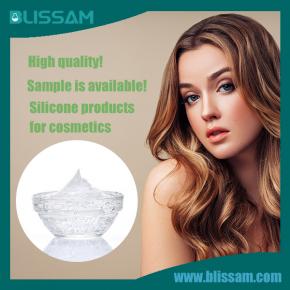
16.How to Produce Silicone Resin?
Usually, various mixtures of methyltrichlorosilane, dimethyldichlorosilane, phenyltrichlorosilane, diphenyldichlorosilane, or methylphenyldichlorosilane are used to decompose at lower temperatures in the presence of organic solvents such as toluene, to obtain acidic hydrolysates. The initial product of hydrolysis is a mixture of cyclic, linear, and cross-linked polymers, typically containing a considerable amount of hydroxyl groups. The hydrolysate is washed with water to remove the acid, and the neutral initial condensate is thermally oxidized in air or further condensed in the presence of a catalyst, ultimately forming a highly cross-linked three-dimensional network structure.
17.What is Silicone Resin?
Silicone resin is a thermosetting polysiloxane polymer with a highly cross-linked structure, which combines the dual characteristics of organic resin and inorganic materials. It has unique physical and chemical properties, excellent electrical insulation properties, temperature resistance, and waterproof effects. Silicone resin has better weather resistance than ordinary organic resins. Therefore, it is an ideal material for the coating of temperature resistant, heat resistant, and moisture resistant protective surfaces.
18.About Silicone Resin payment method
Silicone resin is a synthetic material widely used in various industries, such as construction, automotive, and electronics, due to its excellent thermal and chemical resistance. When it comes to purchasing silicone resin, there are several payment methods available, including credit card, bank transfer, and PayPal. These payment options provide customers with a convenient and secure way to purchase silicone resin. Furthermore, many suppliers also offer the option of cash on delivery, allowing customers to pay for their order upon receipt. With the increasing popularity of silicone resin and the various payment methods available, customers can easily obtain this versatile material for their specific needs.

19.What is the difference Silicone Resin Fluids Blissam vs Silicone Resin Shin-Etsu Chemical Co., Ltd vs Silicone Resin Elkem ASA
Silicone resin fluids are widely used in various industrial applications due to their excellent thermal, electrical, and chemical properties. Three major players in the silicone resin fluids market are Blissam, Shin-Etsu Chemical Co., Ltd, and Elkem ASA. Blissam's silicone resin fluids offer high thermal stability and excellent weather resistance, making them suitable for use in electronic devices, coatings, and adhesives. They also have good dielectric properties, making them ideal for insulation applications. Shin-Etsu Chemical Co., Ltd's silicone resin fluids are known for their high flexibility and low moisture absorption, making them suitable for use in rubber and plastic compounds. They also have good heat resistance and electrical insulation properties. Elkem ASA's silicone resin fluids are known for their high transparency and excellent adhesion to various substrates, making them popular in the automotive and construction industries. They also offer good weatherability and resistance to chemicals and UV radiation. Overall, while all three companies offer high-quality silicone resin fluids, their specific properties and applications may vary. It is important for users to carefully consider their needs and choose the most suitable product for their specific use.
Tag:silicone molding resin,methyl silicone resin,silicone modified polyester resin,silicone mq resin,clear silicone resin
Contact:
Phone: +86-15957191858
E-mail: info@blissam.com
Whatsapp:+8615957191858
Add: A647, No. 9, Xiyuan Road, Xihu District, Hangzhou, Zhejiang, China
We chat
